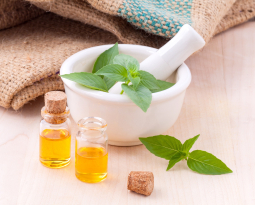(This Article was first featured in CTV News in 2012)
When it comes to medicine, more and more people are looking at natural remedies to cure ailments. Health and Wellness Dr. Gohar Sheikh explains some natural remedies for the common cold.
- ZINC LOZENGES- Zinc is an essential mineral that is found in almost every cell. Zinc has antioxidant effects and is vital to the body’s resistance to infection. It’s also important for tissue repair.
Due to inadequate lozenge iZn, very few of more than 40 different brands of zinc lozenges on the US market are expected to have any effect on the duration or severity of common colds.”
This should be important to the viewer. Nearly all of the OTC zinc lozenges found in retail stores appear patterned after zinc lozenges that failed clinical trials. Real ionized Zinc tastes metallic and dry.
- VITAMIN D
Unless you eat a lot of fatty fish and drink a lot of milk, you can’t get enough vitamin D from diet.
In the largest study yet of the association between vitamin D and respiratory infections, people with the lowest blood vitamin D levels reported having significantly more recent colds or cases of the flu. The risks were even higher for those with chronic respiratory disorders such as asthma.
Vitamin C has been used for the prevention of colds for decades, but little scientific evidence supports its effectiveness. In contrast, evidence has accumulated that vitamin D plays a key role in the immune system. Adult Vit D rda is 600 IUor 15 ugm per day.
“The findings of our study support an important role for vitamin D in prevention of common respiratory infections, such as colds and the flu. Individuals with common lung diseases, such as asthma or emphysema, may be particularly susceptible to respiratory infections from vitamin D deficiency.”
- GARLIC – Garlic is a broad spectrum antibiotic, killing a wide variety of bacteria. Many pharmaceutical antibiotics kill only a narrow range of these germs. Dr. Tariq Abdullah, a prominent garlic researcher stated in the August 1987 issue of Prevention: “Garlic has the broadest spectrum of any antimicrobial substance that we know of – it is antibacterial, antifungal, antiparasitic, antiprotozoan and antiviral.”
In one study, people took either garlic supplements or placebo for 12 weeks during “cold season” between November and February. Those who took garlic had fewer colds than those who took placebo. Plus, when they did get a cold, the people taking garlic saw their symptoms go away faster than those who took placebo.
Garlic is sometimes said to help treat the symptoms of colds and flu, however it is best seen as a preventative. The use of garlic against colds and flu seems to be most effective when taken before the infection is caught, or immediately the symptoms begin to show.
Allicin, which is released when you cut a garlic clove is the chemical that gives fresh garlic its strong biting flavor, and you need to use fresh garlic to get a reliable antibiotic effect. Commercial powders and other products will not work for direct applications. Garlic appears to have antibiotic activity whether taken internally or applied topically – researchers found that the urine and blood serum of human subjects taking garlic had activity against fungi (Caporaso et al 1983).
- HERBS
– ASTRAGALUS (found in northern China-boosts immunity)
Astragalus is an herb that has many reported benefits, including fighting infection and the common cold, to benefiting AIDS patients. Traditional Chinese medicine has used Astragalus for a remedy for many ailments (weakness, edema, diabetes, night sweats, diarrhea, heart disease, blood pressure) and most commonly for respiratory infections. Astragalus is one of the best herbs during cold and flu season because it is thought to protect against the number of colds caught or possibly shorten their duration.
Studies have shown that Astragalus has antiviral properties and stimulates the immune system, suggesting it is indeed effective at preventing common colds and influenza. It can also be taken for virtually all viral disorders and other infectious diseases including flu, sinus infections and ear infections.
Astragalus extract is available in the form of capsules, liquid extract, powder and herbal tea.
– CATS CLAW (a vine that grows in jungles of South America)
Cat’s claw is another herb that is an immune system booster and is sometimes referred to as the miracle herb. Cats claw is an anti- inflammatory and immune stimulant, so taking this herb helps build the body’s defense system and assist the body fight the cold virus.
Cat’s claw extracts are sold as tablets, capsules, cat’s claw liquid extract, the dried and sifted bark and cat’s claw tea.
- HONEY contains more than 180 different compounds that have medicinal and healing benefits. Honey is one of the best home cold remedies because it has the ability to drain mucus from the lungs and lubricates the respiratory tract. Honey can be taken by itself. When combined with lemon, it has the ability to ease cough and soothes sore throat. You can also add honey and lemon to ginger tea because all of them have powerful healing effects.
- EUCALYPTUS OIL (oil from leaves of Eucalyptus tree most commonly found in Australia-aboriginals used it for antimicrobial properties, adding a few drops to hot water and inhaling the steam is one way to reduce congestion. Thick sputum, phlegm or mucus of a cold can be loosened when steam with eucalyptus oil is inhaled. This provides relief from congestion and stuffy nose. – Germany’s government health agency has approved Eucalyptus Oil for the treatment of upper respiratory infections.
Put a kettle of boiling water into a sink or large bowl. Put several drops of the oil into the hot water. Cover your head with a towel or cloth over the bowl and inhale the steam. Do this several times or until you find relief.



